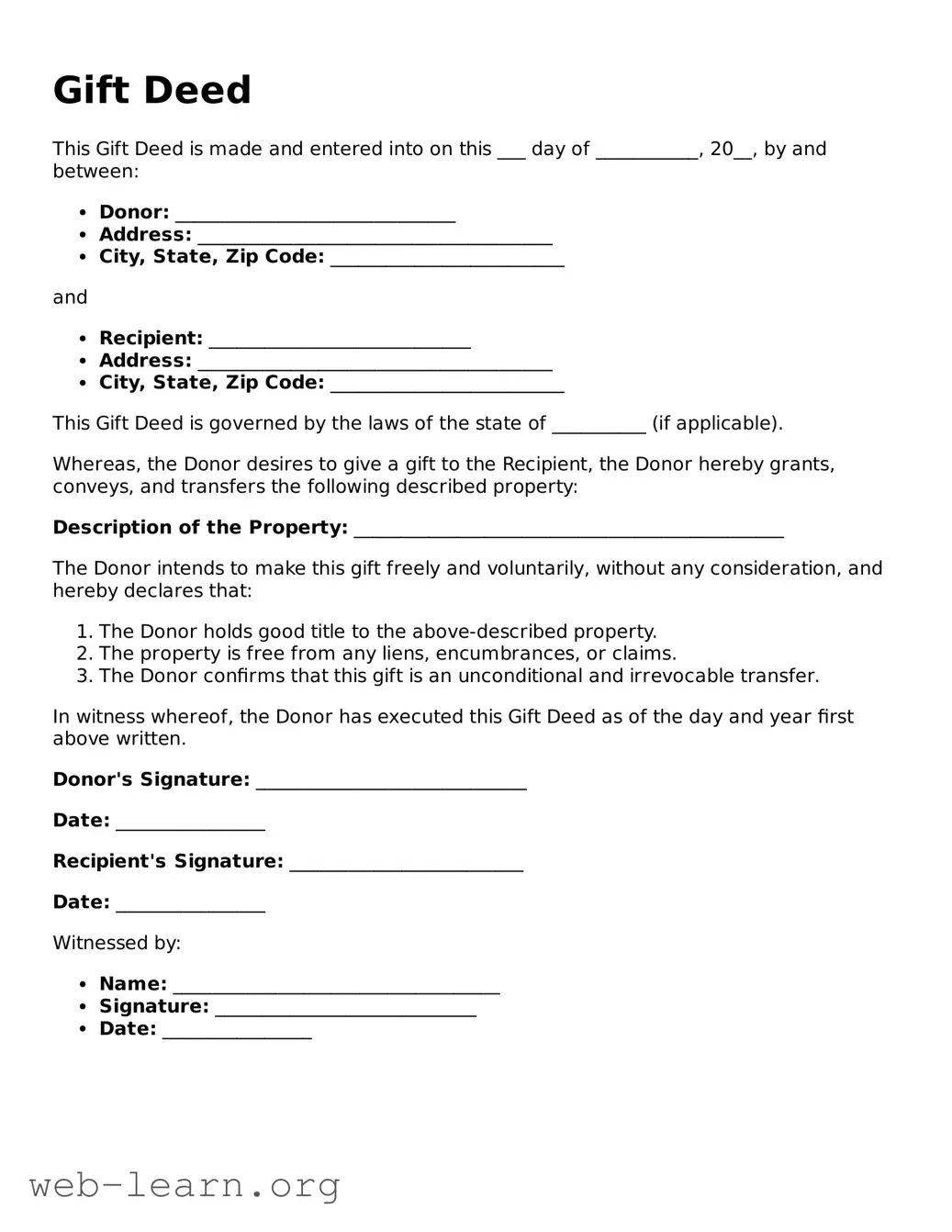Gift Deed
This Gift Deed is made and entered into on this ___ day of ___________, 20__, by and between:
- Donor: ______________________________
- Address: ______________________________________
- City, State, Zip Code: _________________________
and
- Recipient: ____________________________
- Address: ______________________________________
- City, State, Zip Code: _________________________
This Gift Deed is governed by the laws of the state of __________ (if applicable).
Whereas, the Donor desires to give a gift to the Recipient, the Donor hereby grants, conveys, and transfers the following described property:
Description of the Property: ______________________________________________
The Donor intends to make this gift freely and voluntarily, without any consideration, and hereby declares that:
- The Donor holds good title to the above-described property.
- The property is free from any liens, encumbrances, or claims.
- The Donor confirms that this gift is an unconditional and irrevocable transfer.
In witness whereof, the Donor has executed this Gift Deed as of the day and year first above written.
Donor's Signature: _____________________________
Date: ________________
Recipient's Signature: _________________________
Date: ________________
Witnessed by:
- Name: ___________________________________
- Signature: ____________________________
- Date: ________________
